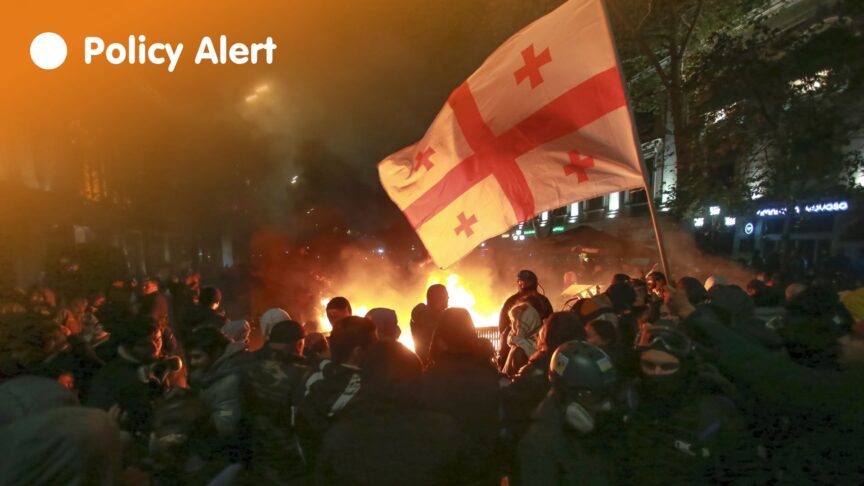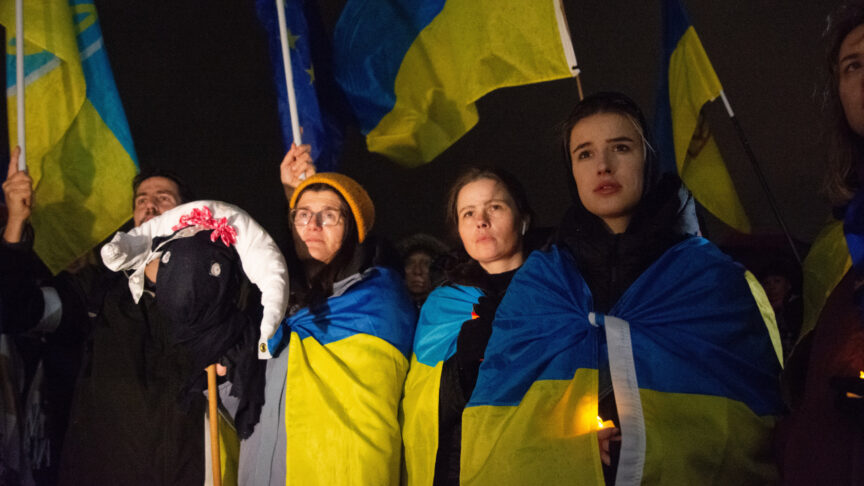Talk therapy: Ukraine’s EU accession and the hurdles ahead
It will take creativity from European leaders to expedite Ukraine’s path to EU membership and overcome the challenges that lie ahead
European leaders last week agreed to open accession talks with Ukraine. This historic step was not an early Christmas present; nor did it come with a “wartime discount” for Kyiv. It was a decision taken on the merit of the Ukrainian government’s progress on reforms. It also came despite objections from Hungarian prime minister, Viktor Orban, who left the room rather than wield his veto.
However, Orban followed through on his threats to block the €50 billion “Ukraine Facility”, a package of funding that will be fundamental to Ukraine’s economic development and recovery. The European Council will likely face a similar challenge to secure unanimity on its framework to guide Ukraine’s accession negotiations.
Greater capacity
Orban’s partial acquiescence coincided with the EU releasing €10 billion in frozen funds for Hungary. But that is not a sustainable way for the European Union to gain concessions. To ensure Ukraine’s progress can continue, the bloc needs to find better ways to counter Orban’s tactics. The EU also needs to turn its attention to the negotiation framework and how the bloc’s essential support for Ukraine’s public sector should develop.
- The European Council will likely vote again on the Ukraine Facility in February. Together with Ukraine, the EU and its member states can work to prepare for the decision and develop alternative financial instruments for the country. The very existence of a ‘Plan B’ to fund Ukraine could deter the Hungarian leader from blocking the Ukraine Facility a second time.
- The EU should look for similar ways to overcome a potential Hungarian veto of the negotiation framework. Some European officials have floated the application of “Article 7”, through which member states are punished for rule of law breaches via the suspension of their EU voting rights.
- The EU also needs to do more to enhance Ukraine’s capability to engage in and lead the accession negotiations. This will involve substantial support for Ukraine’s civil service and public administration. The EU should assess the evolution of Ukraine’s civil service and public administration over almost two years of war and update the bloc’s support for the reform of the sector accordingly.
- For instance, many of Ukraine’s civil servants have been displaced or left the service due to challenging wartime conditions. The EU should provide the training and capacity-building foreseen in the Ukraine Facility to help those who remain tackle the 33 thematic chapters of the EU acquis. In doing so, the EU would help to bridge the gaps within Ukraine’s public administration and expedite the accession process.
Greater morale
The EU’s decision to open accession talks holds historical weight – and not only for Ukraine and Moldova. It marks a geopolitical shift in the EU’s perception of the boundaries that define the European family, extending them from Lisbon to Luhansk. It is also a morale booster for Ukraine, where many citizens view the decision as a signal that the country is not being abandoned. This vital symbolism as Ukraine enters its 22nd month of brutal full-scale war.
The European Council on Foreign Relations does not take collective positions. ECFR publications only represent the views of their individual authors.



